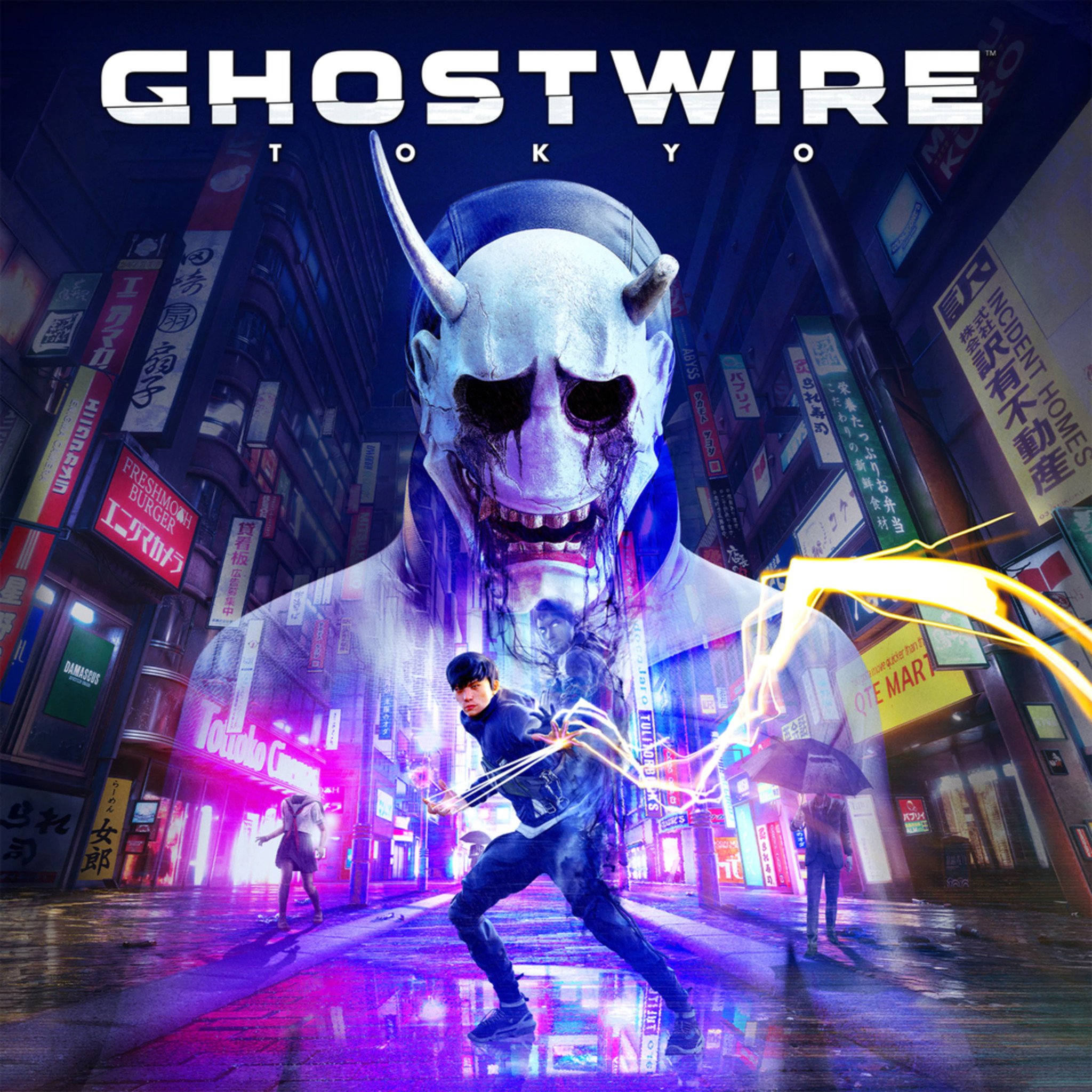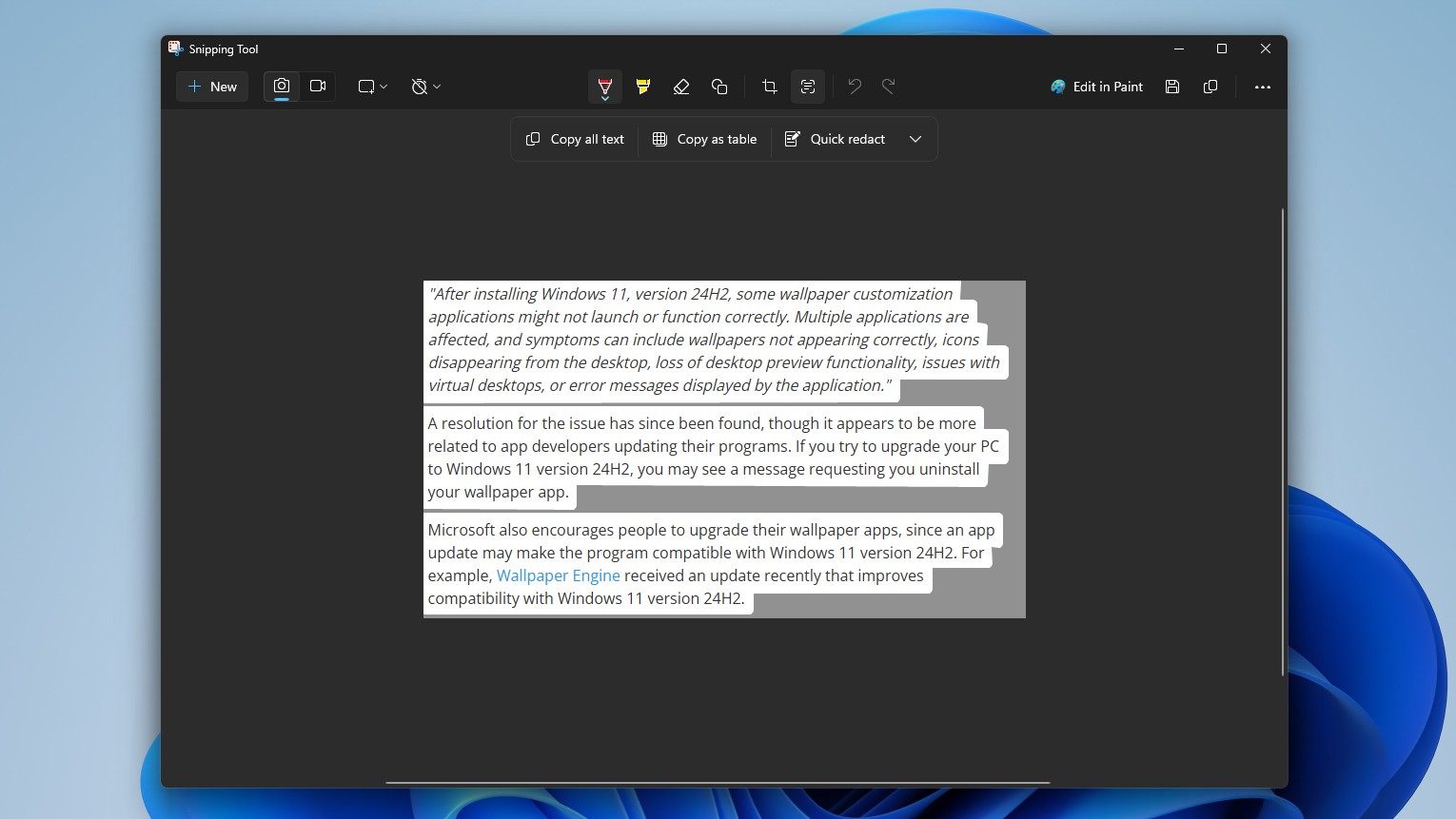One of the more mysterious studios within Microsoft's ZeniMax stable is Tango Gameworks. The developer is known primarily for The Evil Within series, which in my view, contains underrated classics and some of my favorite horror works of the past generation. The studio has been fairly quiet since The Evil Within 2 wrapped up, and while their next game isn't The Evil Within 3, it does retain some of that horror DNA.
Ghostwire: Tokyo is a first-person thriller set in the titular Japanese city. A mysterious mist has descended over an area of Japan's capital, disembodying everyone caught in its wake. You play as one of these unlucky individuals, Akito, who finds himself uniquely skilled in traversing this world between worlds. Joining up with a spectral government agent, KK, you commit to unravelling the twisted machinations of occultist Hannya, on a quest to rescue your sister.
Ghostwire: Tokyo launches on March 25, 2022, and we've been able to go hands-on with the PC version. Here are some early impressions ahead of our full review.
Why this isn't quite a full review (yet)
You may be wondering why this isn't yet a full-blown scored review, and that's largely down to the game's unplayable performance on my laptop. While I reviewed PC games like God of War earlier this year, my computer just doesn't agree with Ghostwire: Tokyo. The game stutters maddeningly during rain sequences, which are frequent occurrences as you explore the city. In this state, the game became incredibly difficult to play and enjoy, and I felt like I wasn't getting the "true" experience.
I, unfortunately, do not have an alternative PC to test whether it's the game specifically at this time, nor do I have access to a PlayStation 5 build. I can't ascertain whether it's an issue with my PC, or something else along those lines, despite trying to reinstall drivers and the like. While we work with our team to figure out an alternative path to put together a full scored review in the future, I still wanted to put down some thoughts about the game besides its PC performance, since I have been unable to determine whether it's my hardware's fault, or the game's fault.
What I'm liking so far
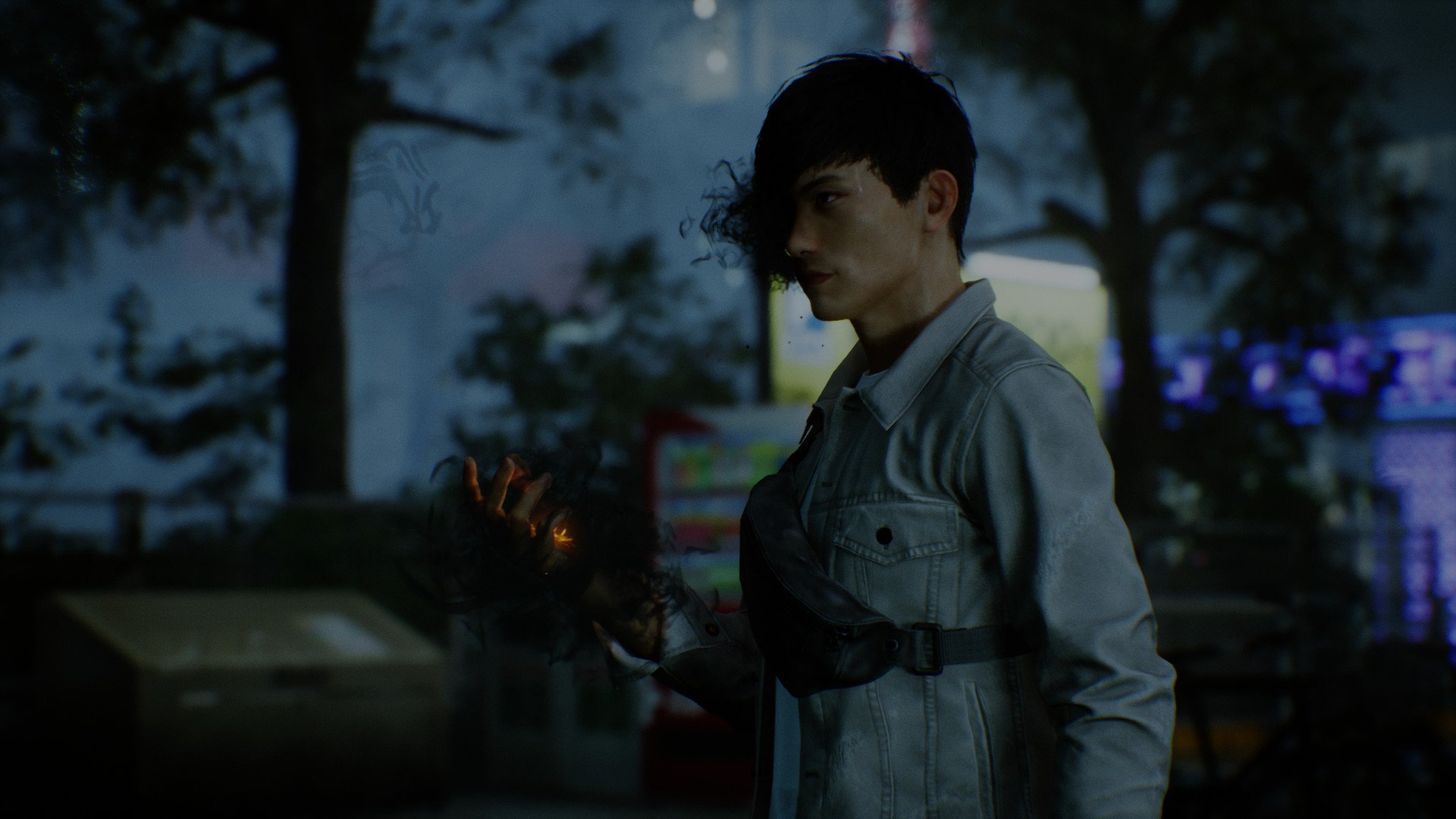
Ghostwire: Tokyo is not quite a jump-scare horror-fest like The Evil Within, and goes a little lighter on the player, focusing on creepy apparitions and poltergeist activity to build up its atmosphere. And for the most part, the atmosphere and design are very nice indeed. Tokyo looks quite excellent on my PC even on medium settings. With NVIDIA DLSS enabled and light ray tracing, rain-daubed surfaces add a lot of depth to the city stylings, with neon signs aplenty across what seems to be a wide and quite vertical playspace. Ghostwire: Tokyo is at least to some degree open world in nature, offering the player a gradually expanding world to explore, complete with interior locations and climbing opportunities.
Ghostwire: Tokyo follows an interesting design format. I noted that it's open world to some degree, but it gates the player quite aggressively using its mist and fog mechanic. It essentially functions like a fog of war, albeit a deadly one. Stray into areas the game doesn't want you to be in, and you can actually die. You unlock areas by completing side objectives to purify shrines in the area, which often come with battles and other challenges beforehand. After unlocking an area, you might also gain access to new side objectives, vendors, and other gameplay features.
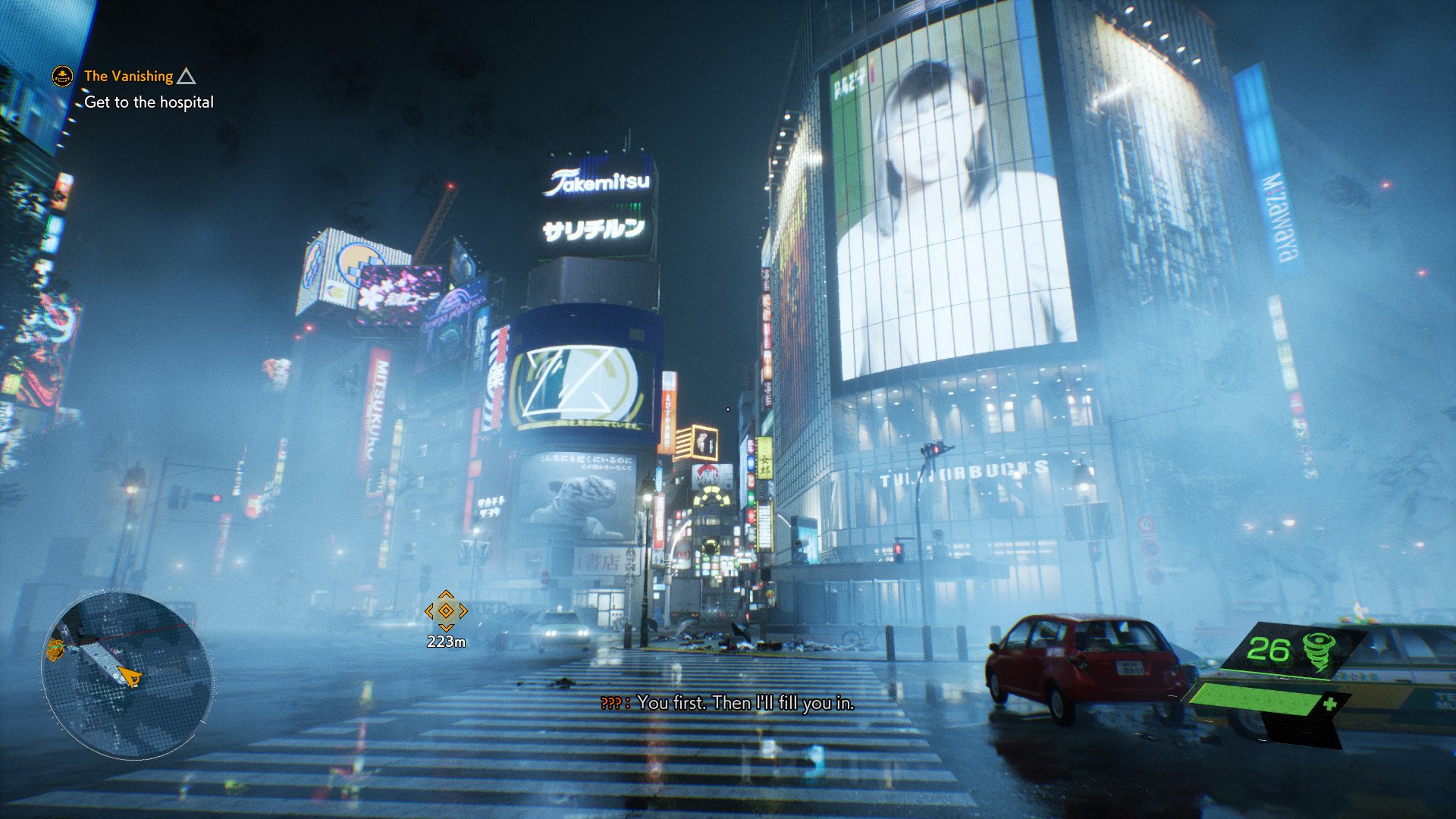
The fog of war isn't your only obstacle. Ghostwire is essentially a first-person shooter, but combat is a shred more tactical than a game like DOOM, where a thoughtful approach to an encounter is often more rewarding than going in gung-ho. Light stealth mechanics allow you to eliminate enemies before taking on the main group. On higher difficulties, knowing the layout of a combat area, where explosive "barrels" might be, and how you can remove bigger threats more quickly works really well. It makes the game feel quite satisfying and unique at the same time. If you try to go in with the mentality that it is a pure shooter, you may find yourself frustrated at the outset. If you approach the combat thoughtfully, you may find yourself pleasantly ensorcelled by its rewarding feedback loop.
Akito unlocks various elemental powers as he progresses through the game. Wind magic, fire spells, and water blades were the first abilities I learned, some of which were rewards for battling mini-bosses or solving hide-and-seek side missions. You can upgrade these abilities using currency and other resources found in the field (and you should upgrade them quickly, since they feel a little weak to begin with), giving you incentives to explore.
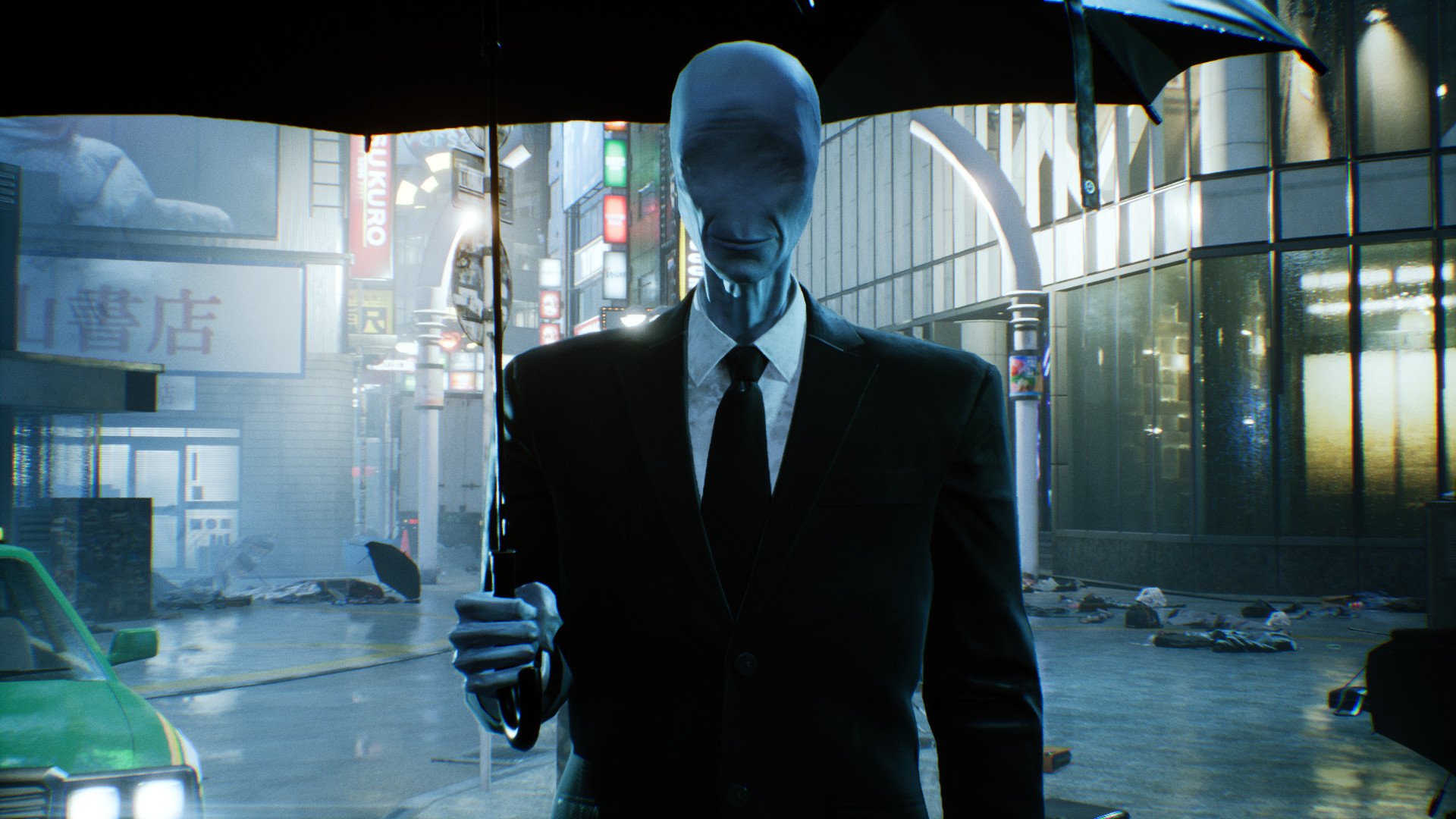
The side quests in the game often have some light narrative elements attached, where you can uncover the unfinished business of various spirits that are unable to move on to the afterlife. The game is heavily wrapped in Japanese folklore, with spirits like Tengu, Kappa, and so on appearing in various forms throughout the game. Fans of Japanese occultism and paganism will find a lot to enjoy in Ghostwire's faithful presentation, although it remains to be seen how repetitive these side quests get further in, given that I couldn't play too far beyond a few hours with my current setup.
I mentioned the performance problems holding me back from getting a true Ghostwire: Tokyo experience, but there are a number of other design decisions that also heavily detracted from my early experiences, that I hope will be addressed either with early patches or future patches as a result of feedback.
What I'm not liking so far
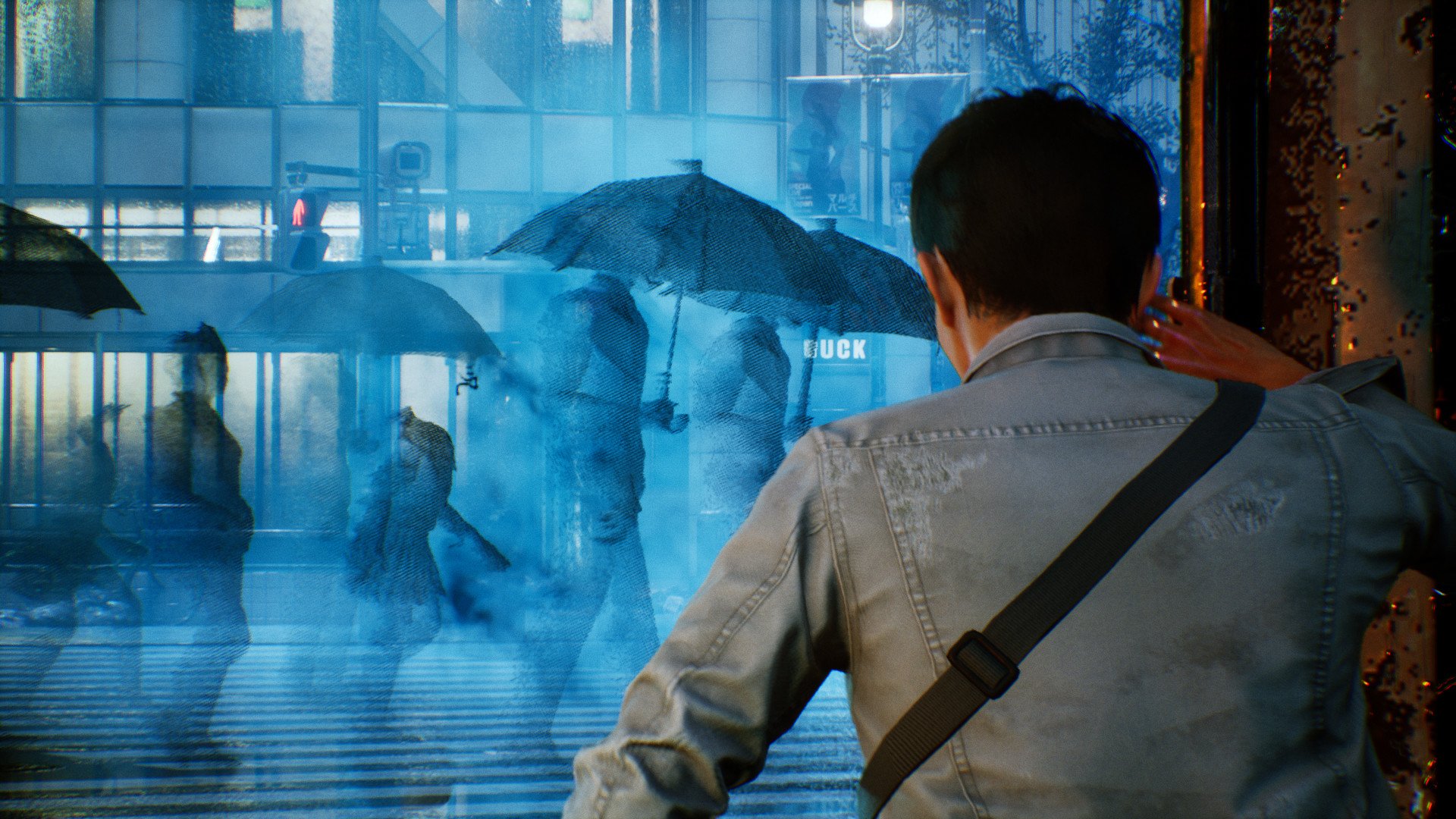
My biggest issue with Ghostwire: Tokyo, strangely, is what I can only describe as sensory overload. Now sure, the stuttering issue I was getting on my laptop probably contributed to this to some degree. However, there's an issue with the game's pacing I feel that makes it feel disjointed and confusing.
The game starts with little real introduction. We get right into it, with the mist blasting over Tokyo, inflicting Akito with mysterious powers. Further context emerges as you progress through the game's tutorial phases, but the way the game tries to weave fairly complicated gameplay systems on top of explaining just what the hell is going on makes Ghostwire: Tokyo feel utterly disorienting. I have no idea exactly what is going on after a few hours of playing, and strangely, Akito doesn't seem to care either. I have no idea why Akito isn't a little more freaked out by the fact he's now a disembodied spirit entity walking between two realities. He has taken to his new role very well, which makes it a little less believable.
Sure, you could take the opinion that the story doesn't matter so much as long as it's fun. This is a game with talking cats and dogs for example, and I suppose it doesn't take itself too seriously as a result. There's no problem with that. My issue emerges from how confusing it all feels, when you take into account the layering of learning gameplay systems, UI elements, on top of what is frankly a confusing story and world at large, and I feel a degree of sensory overload and general displeasure. I'm not sure how much my PC stuttering has become a factor in my sense of this, but there are other aspects of the game that contribute to this general impression of discord.
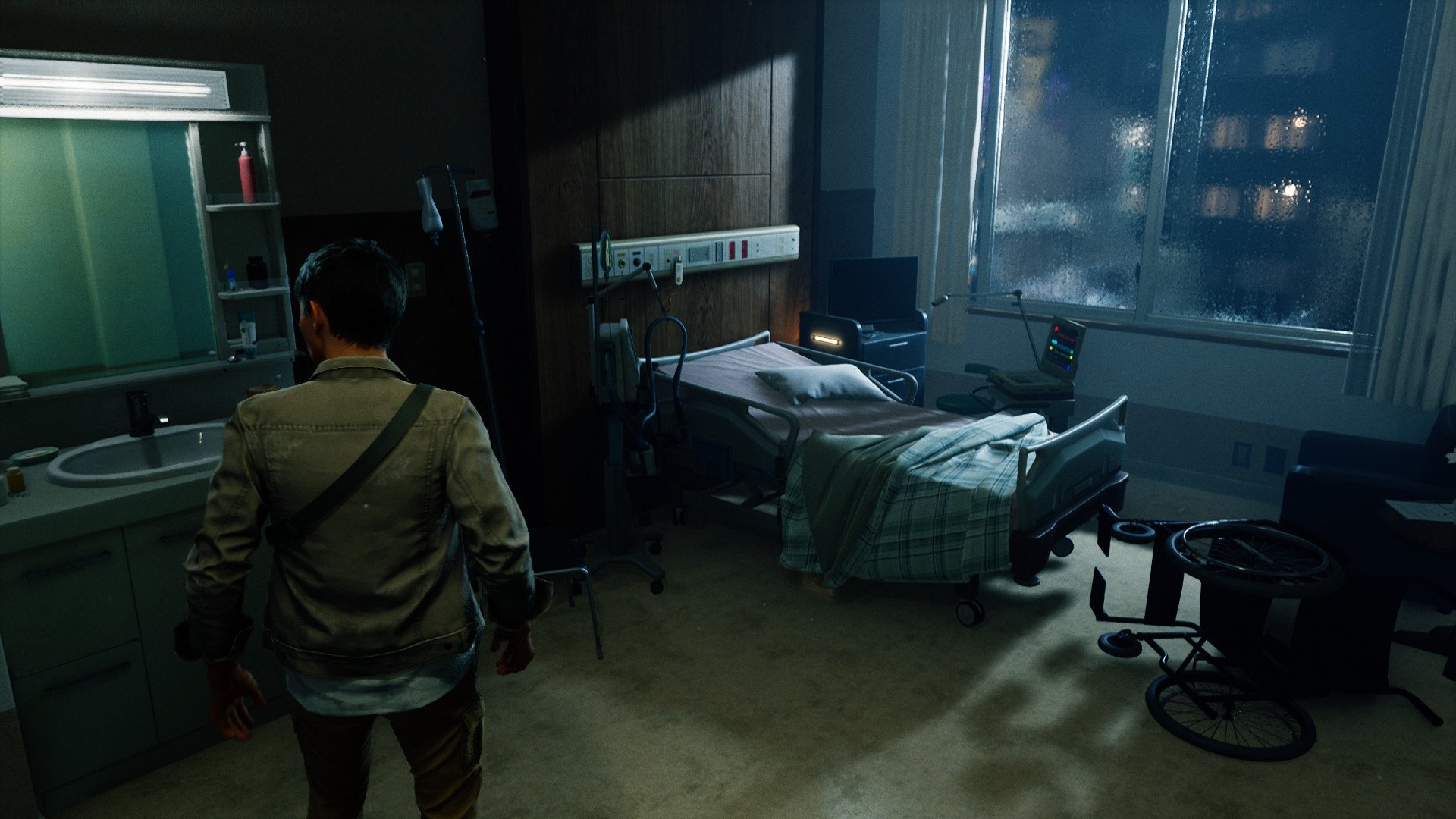
The game has some degree of verticality. You can grapple hook onto flying Tengu demons to climb buildings, and use spirit energy to glide slowly across gaps. The problem is, these Tengu are damn noisy. They screech, constantly, incessantly, to make their presence known. I've never experienced sound design so irritating in my entire life. What's more is these creatures are literally everywhere in the map. So, at least in the first area, your game will be accentuated with nothing but non-stop irritating Tengu screeching. This alone, above everything, made me want to turn the game off. I suspect Tango Gameworks will adjust these sound effects based on feedback. We've seen other games launch with odd sound design decisions like this that were later changed (Prey's in-combat chime comes to mind), so thankfully it's at least one thing that's easily fixed.
I'm not sure exactly how they could fix the game's pacing without a bigger rework, though. The game wants you to learn a lot of systems and features, while also throwing characters and story angles at you with a breakneck pace. It would have been nice if Tango could've found a way to space some of this out a bit, rather than layering it on top of each other in a haphazard way. Haphazardly really typifies my early experiences with Ghostwire: Tokyo. The strange delivery of the tutorial area, the horribly layered sound effects, and the strangely cacophonic art direction that weaves digital sparkles against occult imagery felt a tad incongruous to me at times. I suspect further into the game some of these aspects become less of an issue, and perhaps the pacing evens out a bit.
Curious to learn more
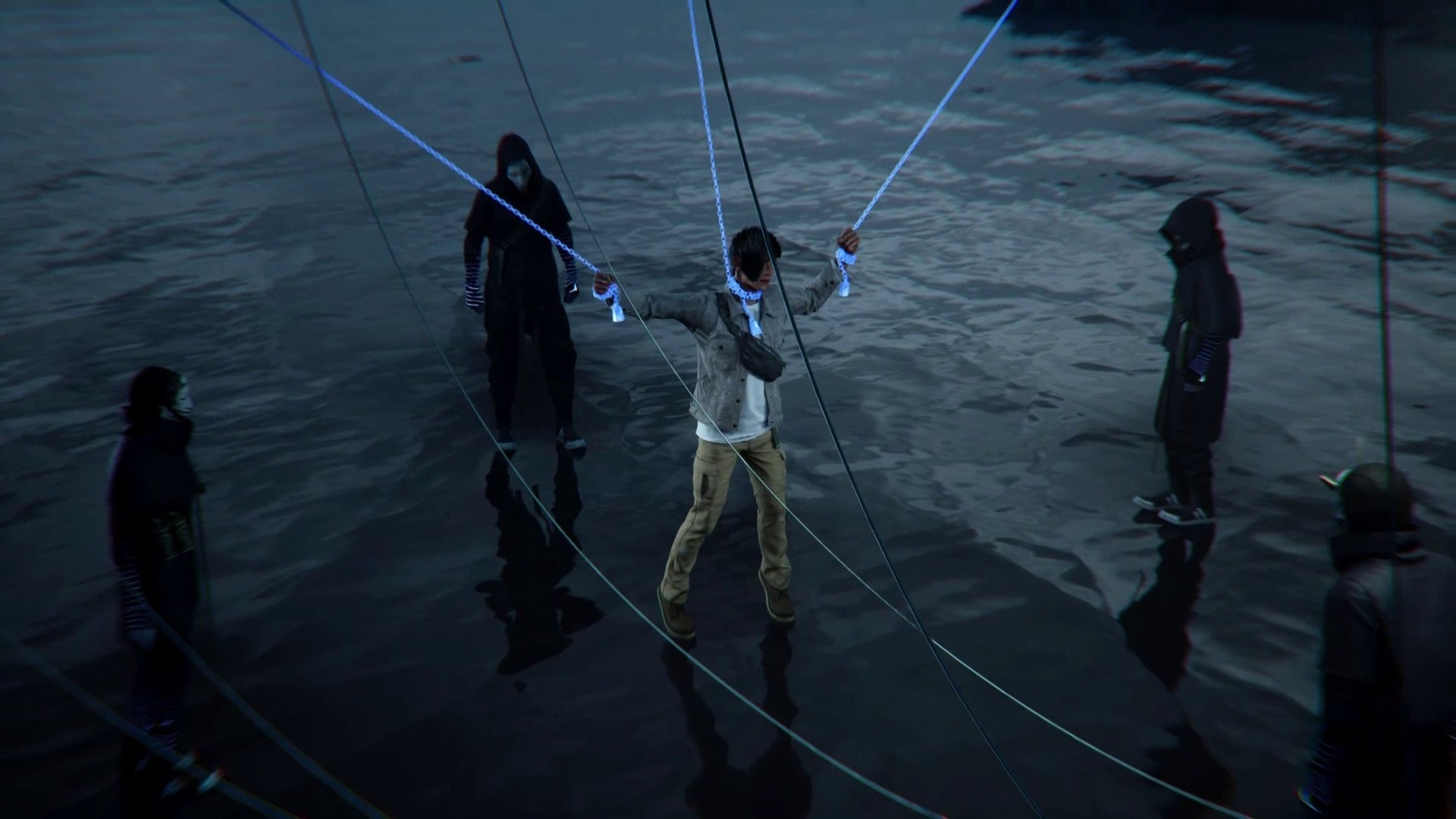
Ghostwire: Tokyo is an interesting game. It has gorgeous environmental design and some great scenery, but also some odd art direction choices. It has great music, but some truly horrible sound design. It has what seems to be a large world, that is aggressive in gating and corralling you. And it has slick combat, in a world that isn't particularly great at offering context, at least early on.
Despite all of the quirks I've come to experience, I absolutely want to play more. The combat direction especially gives Ghostwire: Tokyo a great and somewhat unique hook that elevates it above any risk of being mediocre. Despite my reservations about the game's introductory hours, I do find myself intrigued to learn more about Hannya, KK, and Akito, and just exactly what the hell is going on in Tokyo. I'm curious what other special powers I might unlock further in, and I even found the game's side quests to be interesting experiences, with suitably spooky poltergeist setpiece moments.
As I write this, I have no idea where general reviews will fall or whether this will be one of the best PC games, but I'm looking forward to seeing how other writers feel about the game, who perhaps had a better setup than I did to experience it. In any case, since I doubt I'm going to be able to even find a PlayStation 5 to give this a try on console, I may be waiting for the inevitable Xbox version to really give Ghostwire: Tokyo a proper shake. Yet still, I wanted to offer some initial impressions for those who are curious about the PC experience.

Jez Corden is the Executive Editor at Windows Central, focusing primarily on all things Xbox and gaming. Jez is known for breaking exclusive news and analysis as relates to the Microsoft ecosystem while being powered by tea. Follow on Twitter (X) and Threads, and listen to his XB2 Podcast, all about, you guessed it, Xbox!

